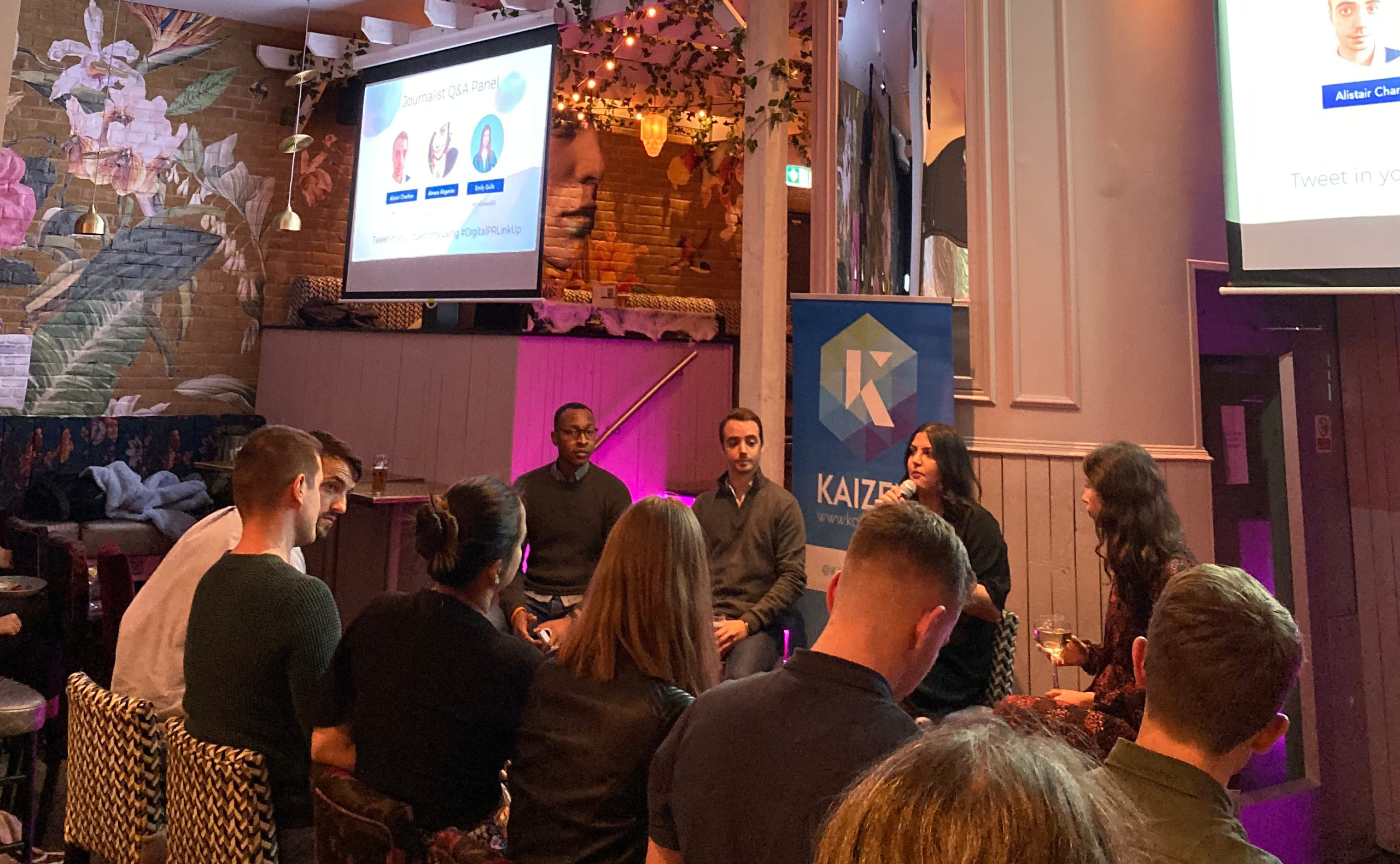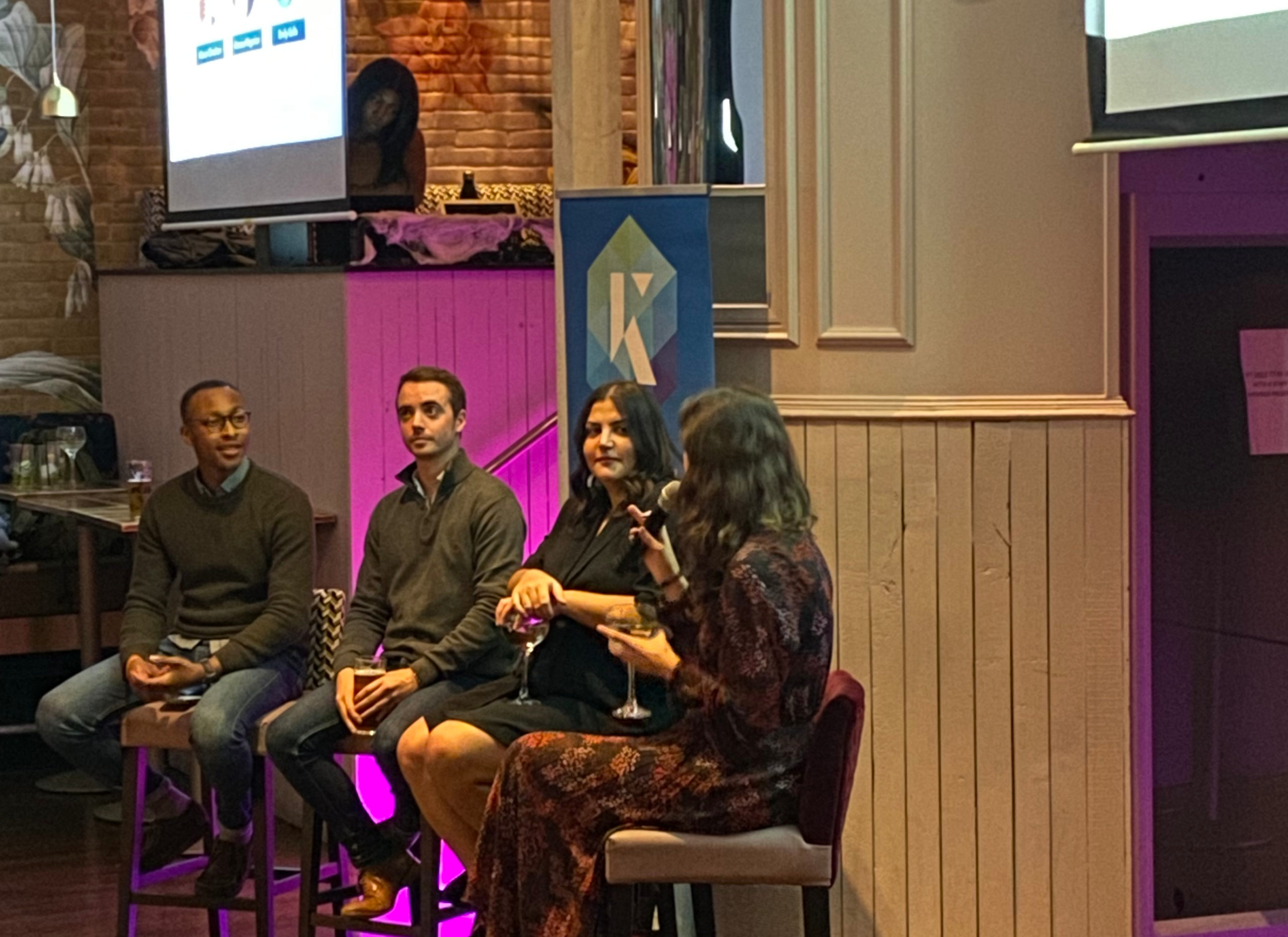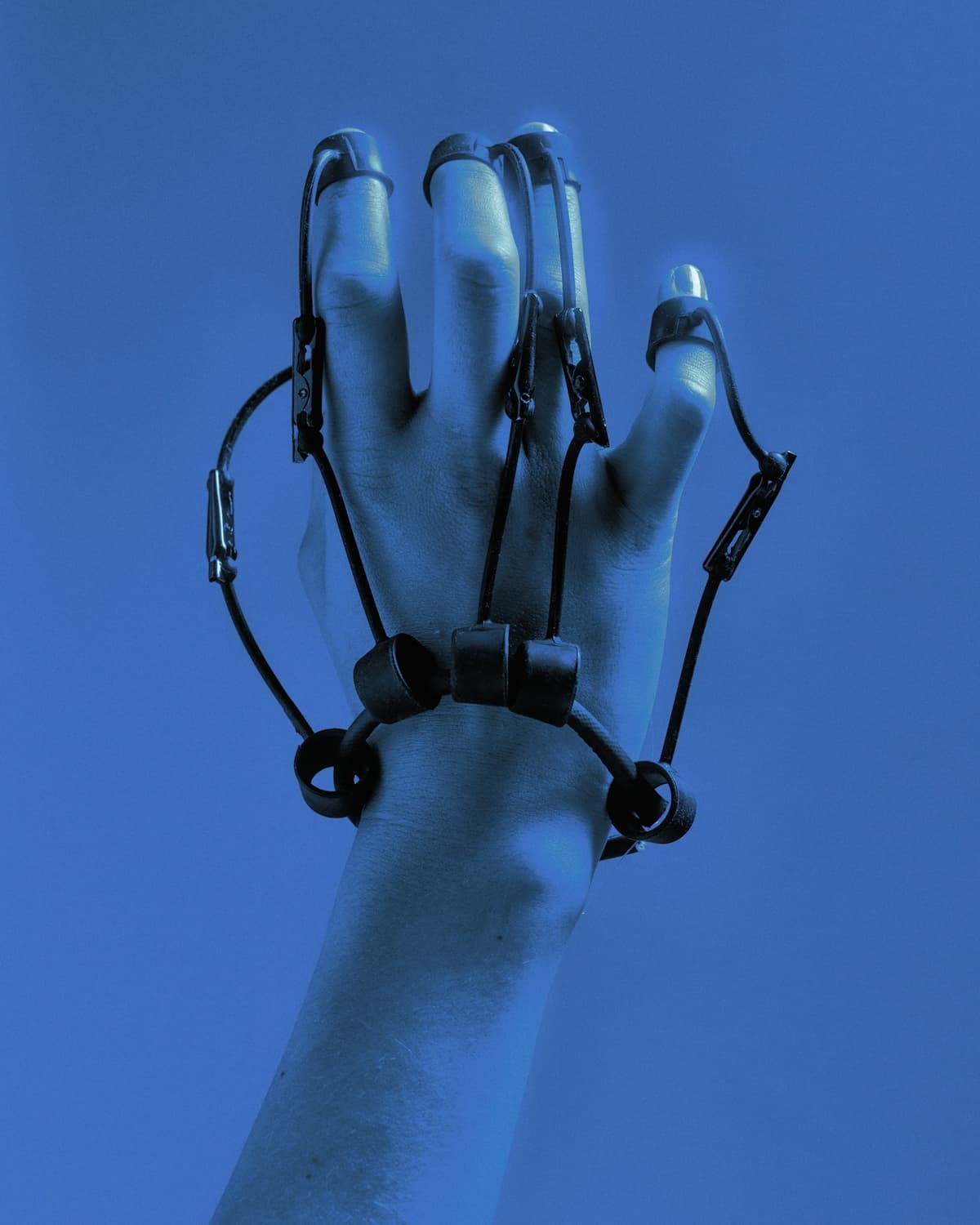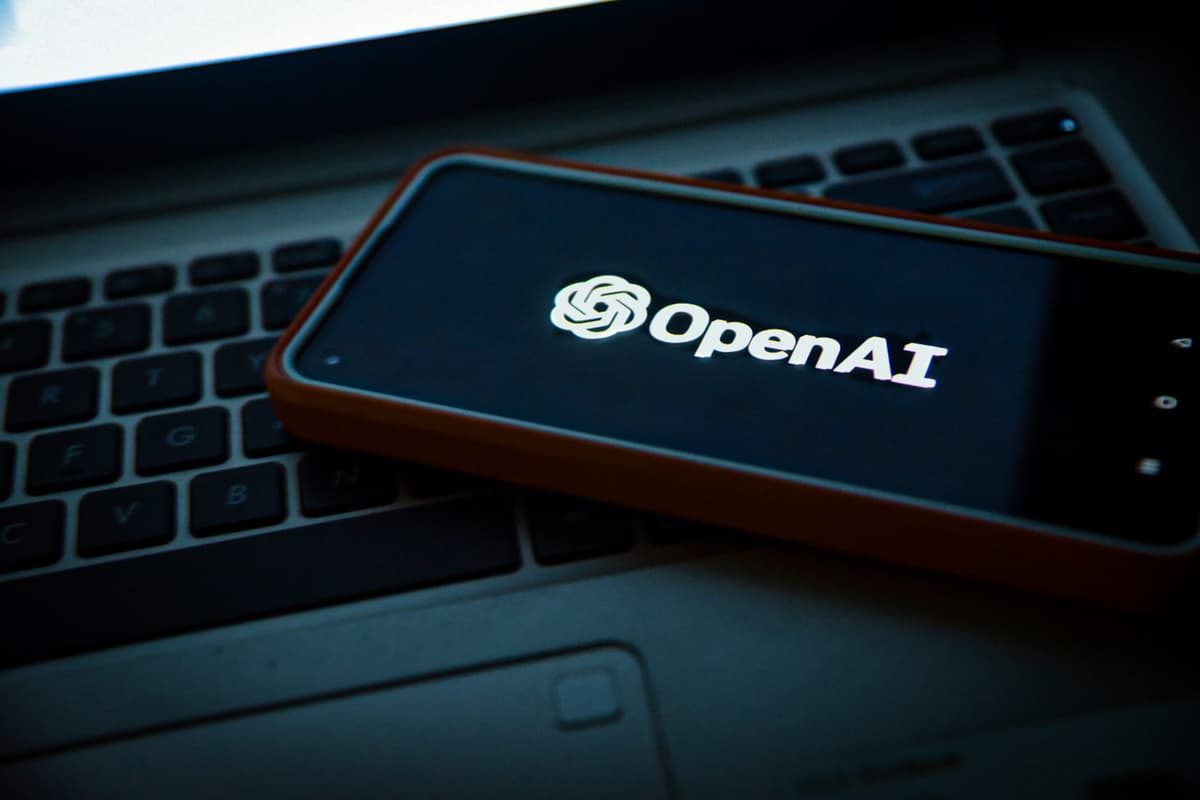Three Journalists Share their Top Tips on How to Land Coverage
Last week, we hosted the second edition of our Digital PR Link-Up, which aims to create a space for people in the digital PR industry to gain new insights and build valuable relationships. As part of our evening, we hosted a Q&A panel with journalists from some of the UK’s most recognised publications: Alistair Charlton […]


Last week, we hosted the second edition of our Digital PR Link-Up, which aims to create a space for people in the digital PR industry to gain new insights and build valuable relationships. As part of our evening, we hosted a Q&A panel with journalists from some of the UK’s most recognised publications:
Alistair Charlton (@AlistairJ90) is a freelance tech and automotive journalist that has written for Alphr, GearBrain, T3, TechRadar, and Wired.
Almara Abgarian (@almaraabgarian) is a freelance editor and journalist and regularly writes for Metro UK and has written for BBC Newsbeat, Huff Post, The Independent, Stylist and Time Out.
Emily Gulla (@emily_gulla) is a features journalist for Cosmopolitan UK and has previously been published on ELLE, Good Housekeeping, Heat Magazine, and Harper’s Bazaar.
Here’s the Q&A panel transcript from the night, so you can find out more about what journalists actually like to receive in their inbox.
Q: What is your biggest pet peeve from PR’s? (E.g. a wrong name, not linking to content, attaching a Word Doc to an email, etc.)
Alistair: Not knowing what I write about or who I write for…you don’t need to know what I had for breakfast, but just know who the audience is.
Almara: I used to work in PR and if I’m being brutally honest, I’m really sorry! Anyone who calls me hun, hunnie, love, babe, sweetie – all of which I’ve gotten in the past couple of weeks, because I know you’re trying to build a rapport, but actually, when it’s people that you don’t know, just be polite, being professional is actually quite key for me. And once you’ve got to that, by all means, send me WhatsApp messages. For a more PR point of view, I’d say really look at the stories that you’re pitching, is there anything in this story that’s going to work for the audience so international publication? Do millions of people care? So look at that more than maybe who the individual journalist is.
Emily: Look at the publication first, it really helps to say I know this feature or particular section that you’ve got, and I think this could really work for that feature rather than just a random pitch. And the other thing for me is just really long press releases that are just so out of the blue without even a top line that says what the gist of it is.
Q: Are you more likely to post content from a contact who you know and have a relationship with people who you don’t?
Alistair: If I do see a name that I recognise then I’m more likely to read the email thoroughly, by all means, emails from anyone I don’t know could be excellent and very valuable.
Almara: It’s not always about the relationship, it’s more about the quality over anything else so if I say I need a comment and I need it ASAP and you get it to me within an hour, and it’s very concise and exactly what I asked for – that’s more valuable than whether I know you or not. I do have a list of PR’s that I know well, absolutely but it’s more in terms if they come to me straight away and give me what I need.
Emily: I would definitely say the content comes before the relationship, if the content is great then it doesn’t matter who it’s from. And similarly, if we have a great relationship if the content is going to work for the publication, then I won’t use it just because of the relationship. But saying that it does help to build personal relationships sometimes, put a name to a face which makes it easier to communicate.
Q: Do you receive an influx of emails at 9 o’clock on the dot? Would it help to schedule things to a more ‘random’ time? Or, when’s the best time to email you?
Alistair: I don’t really mind, to be honest, I think if they all came to me at once then I’d be a bit annoyed but overall, I don’t really mind what time. I suppose in my job one of my clients is based in the US, so I don’t speak to them until midday, so I have a bit of time in the morning in the UK to get their work done and then I go onto my inbox for more UK-focused stories. So if you contact me in the morning I might be a bit busy doing something else. My inbox doesn’t get flooded at any time of day. Also – two minutes before the embargo, that’s not always ideal!
Almara: I would say it doesn’t matter what time it comes in, it matters what the story is so if there’s a news story coming out at midday day and you can put something to it by 1pm that’s great. But then again, if you’ve got an event happening in a couple of days and if I’ve got two weeks to think about it that’s even better. I get on average about 300-400 emails a day but I do look (not open) at every single one I’ll just scroll from the latest so by all means chase in about a week, just give it some time cause I know you’re trying you’re very hardest to be as kind as you can and not chase us immediately and be annoying but just consider that we have a lot to go through and that’s without looking at the newswire and everything else.
Emily: I will look at everything as well, but we are much busier in the morning looking at news stories.
Q: What grabs your eye in a heading (use of caps locks, exclusive, new report or study)?
Alistair: If you shout about it, if you say it’s an exclusive then maybe I’ll open it, say why you think it’ll be valuable to me. Also if it says ‘invitation’.
Almara: I mean true, we work pretty hard so if you invite me to something I will definitely take a look. When I used to work in PR we used to include the press release in every single email as the first thing, we didn’t realise that it actually cuts off our engagement. So I would say rather than put in exclusive or news story or whichever just say whatever you need to say as soon as possible. The one thing I would avoid that I do get quite a lot is people copy the first line of the email into their subject line – you lose a line because I see the same thing twice.
Emily: If it says exclusive then I might be interested. If it’s something that is specifically sent to me cause it’s suitable for our readers. It’s better when the subject line will grab me.
Q: Is it better to include the press pack? And how would you like PR’s to attach it – a link to a Google Drive or Dropbox?
Alistair: In my line of work, it’s product-led so whether it’s a new phone or a new car then a link to images, press release, spreadsheets are useful. On images, the size of them is really important.
Almara: I kind of dispute when you need a press pack at all. If you send me a news story, why not send me a news story and I want to grab it I will tell you I want photos. What I’m looking for in most emails is the top line of the story, even if it has a press pack, if it isn’t in there then I will stop reading. If you do include a press pack then Google Drive is great.
Emily: Google Drive to minimise space used downloading. I prefer it to be linked out or attached in any way rather than just copy and pasted onto the email, because that’s when you get a big wall of text, and you can’t look at everything at once. If you can summarise the topline and the most important points and then link out to the photos to look at rather than sending it all at once
Q: How much does the brand affect your likelihood to post something? Would you consider not posting good content because you don’t like the brand?
Almara: If you’ve got something great it doesn’t matter where it’s from or what brand it is, the only thing I would say is the only exception is when its a topic we don’t cover, for instance, I don’t write about plastic surgery because I’m a freelancer I choose not to. I do lots of news stuff too, so it really kind of depends. Obviously, we try to be as unbiased as possible but there’s still a line that you don’t really cross, so it might be relevant in terms of what you guys cover but not for us, and I would bear that in mind generally. The media tries to be as open-minded as possible so if the brand is really close-minded, then we won’t cover it.
Emily: I think the content comes first, so if I think the data and story are great – I’d use it.

Q: Have you seen a shift in editors giving you stories or journalists pitching to them?
Alistair: Sometimes it’ll be top-down where the editor says these are your stories.
Almara: I’m a freelancer but I do sit in an office, so we do have an editorial meeting every day for ideas and for features we come up with our own. Also, in terms of that relationship that you mentioned earlier that’s also good to be the type of person to go we saw some relevant ideas that would work for your audience are you interested in these, can we provide expert comment?
Emily: Not necessarily, a lot of the time it is coming from us, we still have pitch meetings for news stories every morning- we don’t really get told what to do. It’s also the same for our features in the magazine, it’s usually us pitching them as well.
Q: What’s the most important thing about a PR’s pitch to you?
Alistair: A good understanding of who I write for, what I write about, who my audience is, and if you get that right at the start, then the pitch is probably going to be half-decent, I will look at that and say ‘yeah’ actually it is good for this publication
Almara: My most important thing is to treat me like a human being, I know that you’re thinking of it as business and sales, and I totally understand that, but I think it’s important to say hello, get my name right, and tell me what you want to tell me as early as you can. I’d honestly try it out on a colleague and try and say it in a few sentences and if you can’t, then you probably need to improve that.
Emily: Awareness of our brand is so useful, and being aware of our sections and our regular features.
Q: How can we cut through the Christmas coverage?
Alistair: Sometimes we’re pretty sick of hearing about Christmas as well! I’d rather be looking for features for the New Year or a summary of the year, so trends to look forward to in 2020.
Almara: You’re more likely to get a story just before Christmas than you are at other times for a national anyway, but you could probably squeeze in a semi-okay story on a day where I’ve got nothing else to write about.
We’d like to thank Alistair, Almara, and Emily for joining our panel on the night and giving us advice on how to craft better pitches. We’ll be hosting our next Digital PR Link Up soon – keep updated on our events here.

 Search
Search PR
PR AI
AI Social
Social













